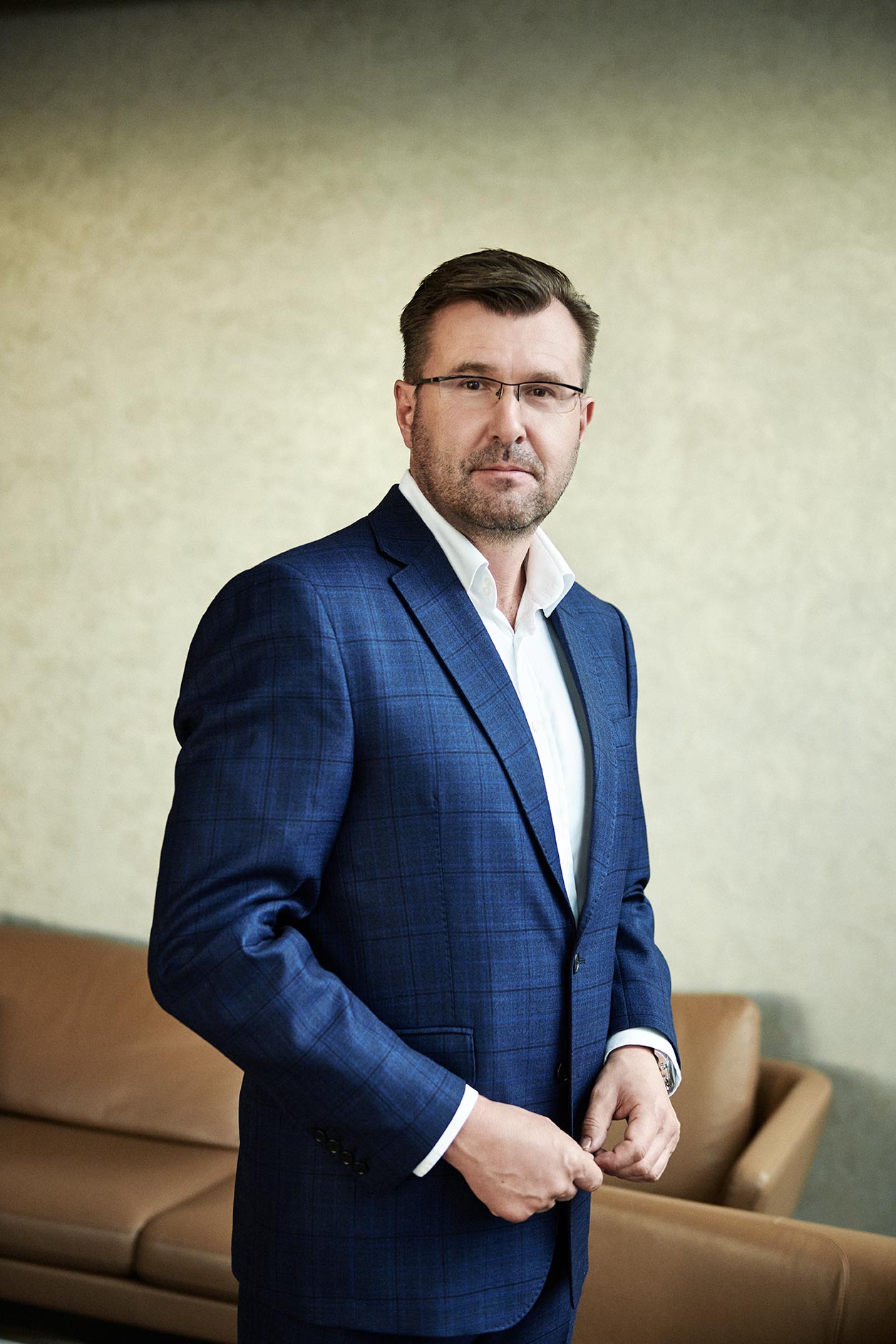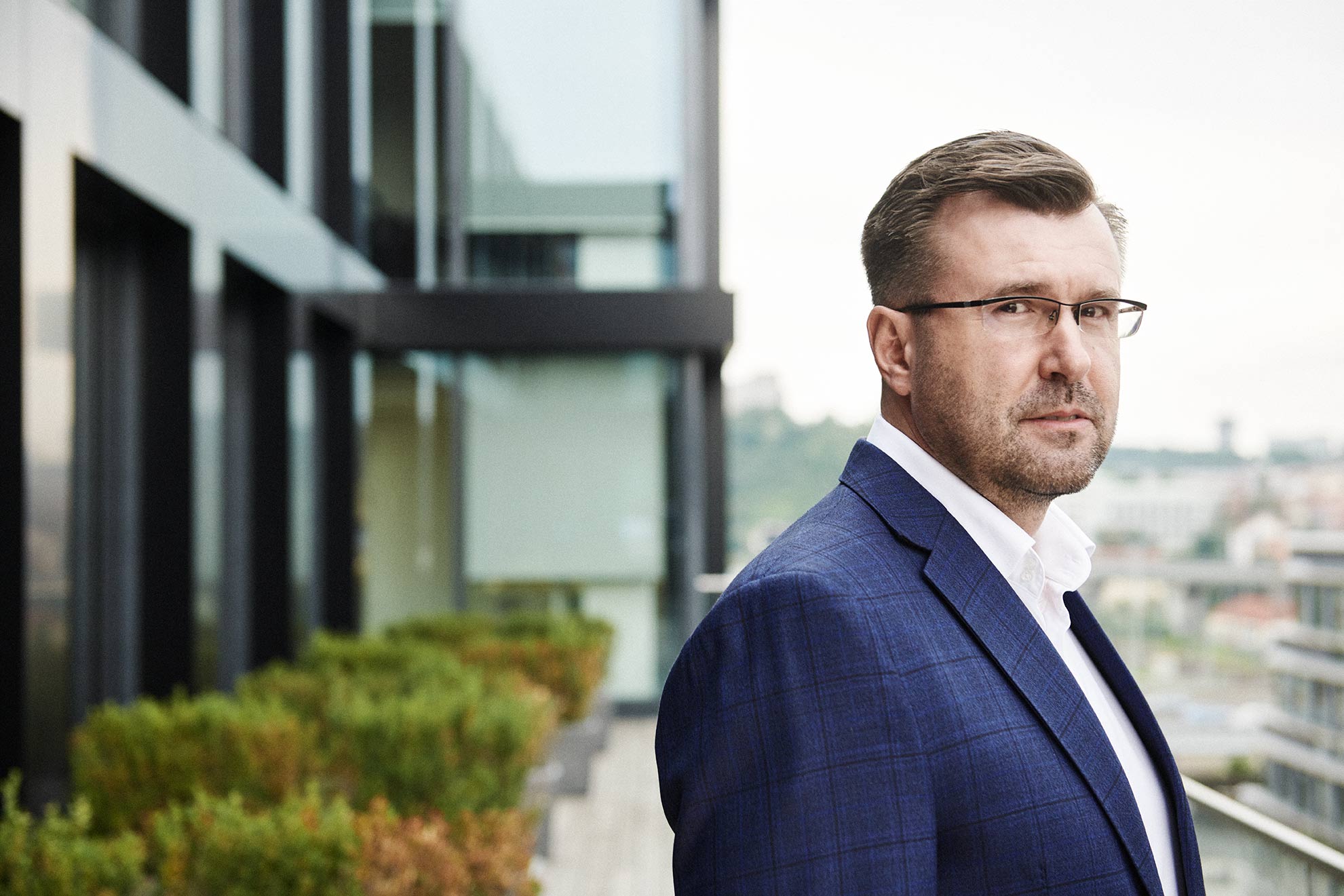Successful entrepreneurs have so far increased their wealth enormously, mainly by building and developing their firms. Now comes the time when efficient and professional property management will be crucial for their further development, but also for the mere maintenance of their value, says Jaroslav Havel, the managing partner of the largest Czech and Slovak law firm HAVEL & PARTNERS. What issues are Czech billionaires dealing with today and what role will women play in the transfer of wealth in the future?
How has the war in Ukraine affected your work? Has it had an impact on the provision of services to some clients?
Today’s times are testing the readiness of business models in the face of significant economic and geopolitical changes. The global, Czech and Slovak economies are facing high inflation, many companies are still coping with the effects of the pandemic, and are now dealing with the economic and business consequences of the war in Ukraine and the energy crisis. Logically, this has major implications for many companies, and clients are concerned about how to succeed and function in these unpredictable conditions.
What impact do you think the Russian aggression in Ukraine has had and will continue to have on the wealth of Czech billionaires? And what are the common issues that Czech and Slovak billionaires are most concerned with now?
The main shock has already passed and entrepreneurs had to start functioning in the new situation. Many are adding up the losses, which will be significant in many industries, while others are focusing on changes in investment strategies. But of course, a large part of the richest Czechs and Slovaks continue to get richer. At the same time, everyone understands that Russia is already an unacceptable business partner, which may discourage many investors. All of them, without exception, are also affected by the secondary impact of the conflict, which is energy and its prices. In addition to the impact of the energy crisis on individual sectors, Czech and Slovak billionaires are also interested in much stricter separation and more effective protection of private and business property. They also focus on geographic financial risk management. On top of that, they also deal with issues unrelated to the conflict, such as the intergenerational transfer of wealth, motivating key employees and, last but not least, educating asset managers, a field that has been neglected in our region.
Decisions need to be made based on good data analyses. I consider digitisation and data analyses to be one the most important factors in keeping a company on the way to prosperity today.
Last year you described the dynamic development of the digital economy, which also affects the services you provide. Owners of companies operating in the digital economy are beginning to be counted among the richest people in the Czech Republic. What trends have you noticed in the Czech Republic right now?
Today, the pressure for digitisation in any form is enormous. In order to catch up, companies need to be familiar with technological innovations, keep track of the latest developments, and learn how to work with them and use them strategically. Today, it is more important than ever to monitor, analyse and use data efficiently. Data can change from day to day in today’s circumstances. Inflation, energy prices, the impact of the central bank’s credit policy and other factors are affecting virtually every sector of business, changing conditions sometimes from week to week. If you want to survive in these circumstances, you need to make decisions based on good data analyses. I consider digitisation and data analyses to be one the most important factors in keeping a company on the road to prosperity today.
Do you expect the share of the digital economy in the total wealth of the Czech Republic to increase?
The e-commerce segment grew significantly during the pandemic, but we have seen a downward trend in recent months. This is again related to the current situation where people are starting to economise. On the other hand, there has been a growth in technology start-ups in the field of logistics software related to e-commerce. Therefore, companies are looking for ways to save on input costs to compensate for the losses from decreasing sales. We are also seeing a growing trend in technology and fintech. We expect growth in these sectors in the coming months as well.
You have been a lawyer for more than twenty years. How would you describe the transformation of the Czech business elite over the last two decades?
After the wild 1990s, Czech entrepreneurs have learned to develop their business in a mature market environment, not only in the Czech Republic and Slovakia, but they are also becoming more and more successful in the world. Equally, a time has arrived when the generation of post-revolutionary entrepreneurs who built successful companies after 1989 have hit the peak of their working age and are now very urgently dealing with who to pass their business to. I also find it extremely inspiring to work with the new generation – the young community of entrepreneurs and start-ups. We are in close touch with them in our work. This is a generation for which studying and working abroad was a common practice. They have grown into top professionals with innovative ideas who have achieved worldwide success. In some fields, especially in IT, Czech or even Slovak companies are really at the top and some of them set global trends.

Until now, entrepreneurs have built successful companies and increased their wealth enormously as they grow. Their successors will need to preserve this property and continue to manage it successfully so that the income from it will provide for their families in the long term.
Successful women are increasingly winning their way in business. Do you also see this trend as legal and tax advisors?
The transfer of wealth into the hands of women has long been discussed abroad. It is a topic for elite consultancies and financial institutions that tailor their services, products and marketing activities to women. Our firm has kept track of these foreign trends for a long time, assessed their impact and implemented many of them in the local environment. As a result we have decided to look into this important phenomenon in the Czech Republic and Slovakia. In fact, we expect that in the years to come, a significant part of the wealth will be transferred to women. We have carried out a unique study on this, which opens up a discussion as to what these changes will mean not only for advisory services, but for society as a whole.
Why is it important to focus on the topic of women and the transfer of wealth into their hands?
Women are going into business more and more often, building successful companies, becoming leaders, educating themselves and, as a result, increasing the value of their property. In addition, many of them also inherit property from their spouses or parents or acquire it through other family events, such as divorce. In our study, based on a detailed analysis of the property and family background of the richest Czechs and Slovaks and the largest family businesses, we examined what a sudden transfer of wealth from one generation to the next would look like under the law. Although these figures are only indicative of specific limited groups, our model has confirmed that, in the extreme case, up to 70% of wealth could pass to women in the next generation. It is therefore certainly necessary to think of women as potential owners of a significant part of the wealth. This is also because they have specific needs compared to men.
What are the differences in how men and women treat property?
According to foreign studies and in our experience, women are not inclined towards risky investments and prefer more conservative capital protection. They invest on a long-term basis and in line with their goals and beliefs. For example, they take into account the environmental or social aspects of their investments, and also support other women. On the other hand, men do not mind taking risks with investments and tend to place more emphasis on pure efficiency. They make investment decisions based on performance.
On what issues do you most often advise wealthy clients?
For many women, it is already, or will be in the near future, a major challenge for how to deal with, manage and make decisions about their own property. We address their specific needs, whether they are entrepreneurs, managers or heiresses in the next generation of business families. The demand for professional representation in women-led businesses is continuously increasing. We see the transfer of wealth to women as part of a broader phenomenon known in the Western world of wealth transfer from founders to administrators.
What exactly does the property transfer from founders to administrators entail?
While entrepreneurs have built highly successful businesses and increased their wealth enormously as they have grown, their successors, many of whom will be women, will seek to maintain and continue to manage their wealth successfully so that the income from it will provide for their expanding families in the long term. This is unlikely to lead to the strong growth of companies as in the early, founding days, because the aim will be rather to maintain the value of the assets, their yield, to ensure conservative growth and to maintain the positions gained. Efficient management of acquired private assets will thus become more similar to the trend of managing family businesses through family office systems administered by professional management. Of course, the family will continue to play a key controlling role.

This interview was published in the E15 Premium – Business Elite publication, supported by HAVEL & PARTNERS each year. However, the firm is not involved in compiling the ranking of the 100 richest Czechs and Slovaks, which is part of this publication, nor in estimating their wealth. Nevertheless, by supporting this project, we would like to express our appreciation to the Czech and Slovak entrepreneurs who have created and cultivated free enterprise over the last thirty years, whose ranks include many of our clients.







